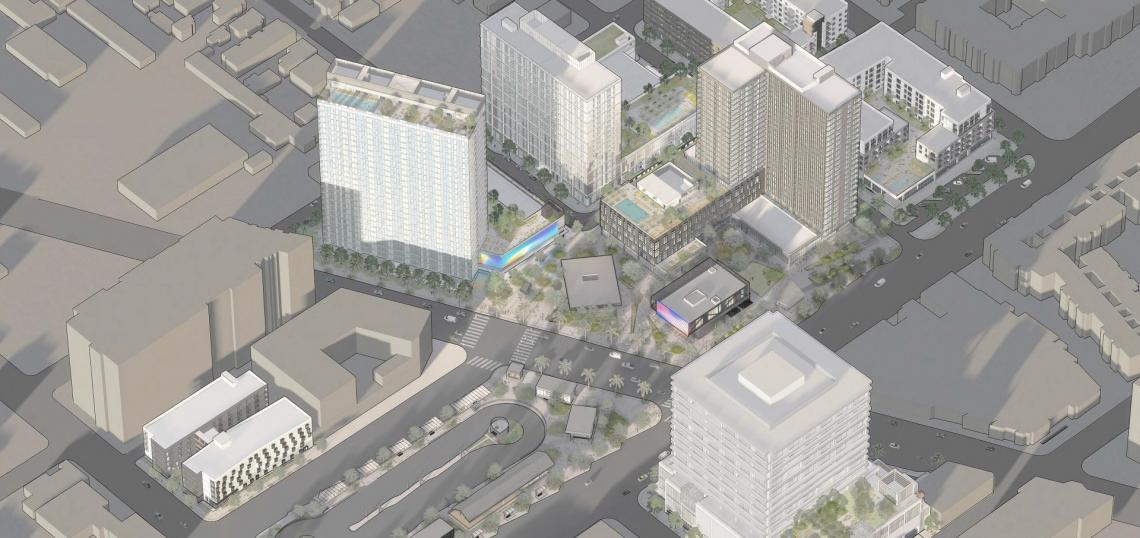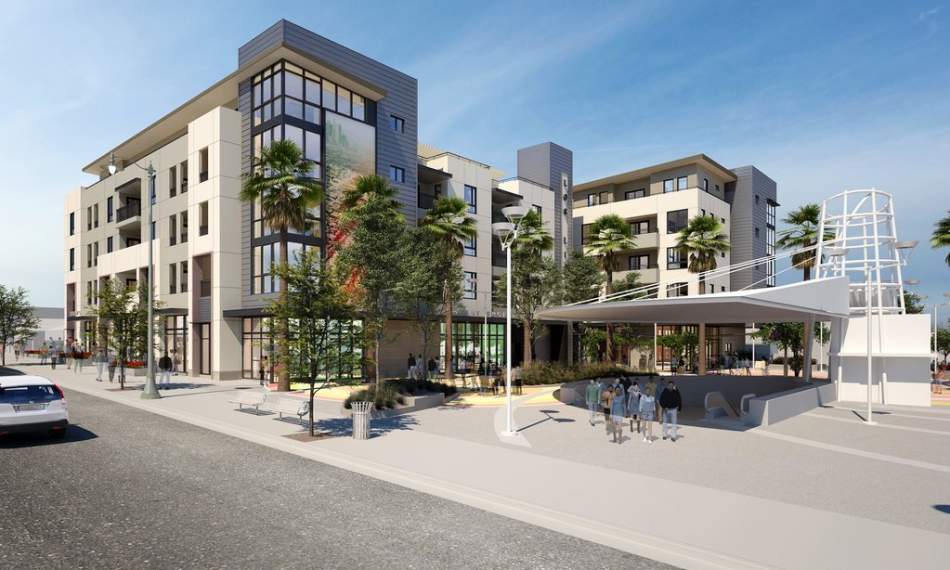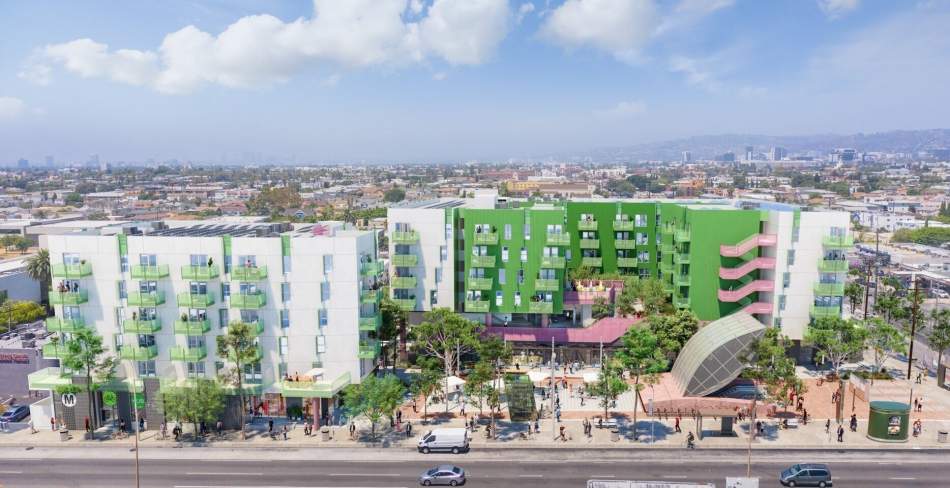Over the coming decade, Metro will use revenue gathered through sales tax increased passed by voters in 2008 and 2016 to build new rail and bus rapid transit lines throughout Los Angeles County. The land that the transportation agency acquires in pursuit of those projects could be used to combat the region's affordable housing shortage, under a plan scheduled for consideration by a Metro board committee on October 20.
The report to the Planning and Programming Committee, which comes in response to a motion introduced by board members Jackie Dupont-Walker and Hilda Solis, calls for Metro to set a goal of completing 10,000 housing units as part of its joint development program over the next 10 years. The agency intends for half of those new homes to be set aside to rent at levels below market rate.
That 10,000-unit figure would count existing housing already built on Metro-owned sites, which today tallies more than 2,200 homes and apartments - nearly 800 of which are income restricted. The current slate of under-construction and planned projects, if realized, would push that total to more than 4,600, including more than 1,700 affordable units.
Plans to ramp of the agency's development efforts are also pitched as an opportunity to enable participation in Metro projects by medium-sized contractors and community-based organizations - including community land trusts.
The staff report follows four months after the Metro Board adopted an updated joint development policy, which sets new goals for 100 percent affordable housing on agency-owned land, as well as new limits on parking and neighborhood-specific standards for affordability.
Among the changes in the updated policy is an expansion of the affordability range eligible for joint development projects. While the agency previously allowed units priced for households earning no more than 60 percent of the area median income, the new policy allows housing up to the 80 percent affordability level, which will allow projects to take advantage of incentive programs like the statewide density bonus and the City of Los Angeles Transit Oriented Communities guidelines.
Moving forward, Metro staff have been instructed to establish a database of community based development organizations, as well as small- and medium-sized businesses, for participation in future joint development projects.
- Metro Joint Development (Urbanize LA)








